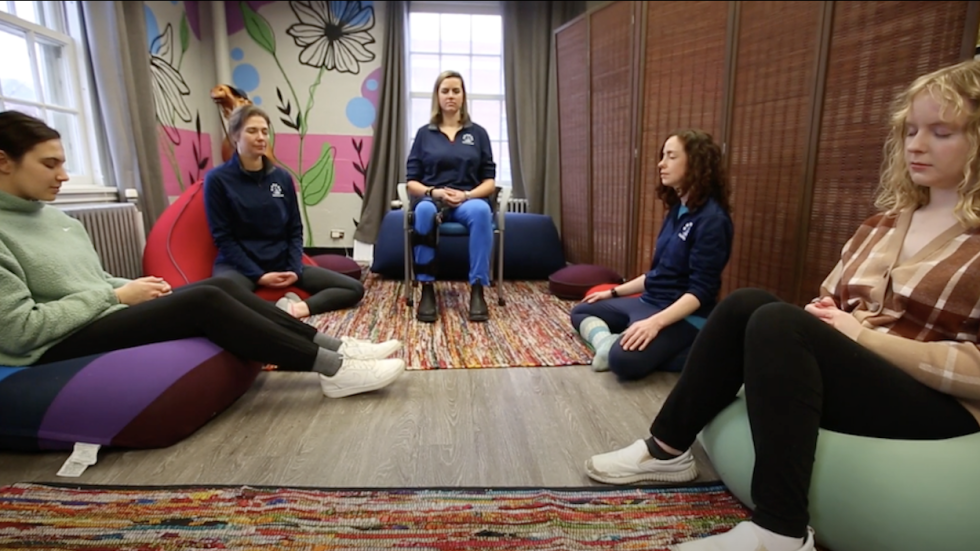BUSINESS CHALLENGE
Burnout among nurses is at crisis levels, leading to workforce shortages and mental health challenges across the healthcare system. At the University of Maine School of Nursing (UMaine SON), burnout was affecting not only practicing nurses in clinical settings, but also students, faculty and staff within the university itself.
For Dr. Kelley Strout, Associate Professor at UMaine SON, this issue was deeply personal. Early in her career, she recognized the critical need for nurse well-being, proposing WellNurse as her doctoral dissertation topic in 2009 — a concept initially met with skepticism. More than a decade later, her vision became a reality when UMaine Nursing secured a $1.5 million grant from the Health Resources and Services Administration (HRSA) to launch WellNurse, a program dedicated to reducing burnout and improving mental health within nursing education.
To ensure the program’s long-term impact, UMaine sought an evidence-based, scalable solution that could be fully integrated into the nursing curriculum and faculty training.
BROWN’S SOLUTION
The Brown University Mindfulness Center and School of Professional Studies (SPS) collaborated with UMaine to design and implement a population-based mindfulness custom program to combat stress and burnout. A core component of this initiative was the integration of Mindfulness-Based Stress Reduction (MBSR) into the nursing curriculum. First-year and graduate students participated in credit-bearing mindfulness courses, with additional elective offerings for those seeking deeper engagement.
A key factor in the program’s success was faculty development. Five UMaine faculty members enrolled in Brown’s MBSR teacher certification training, equipping them with the skills to deliver high-quality mindfulness interventions to nursing students. The program’s curriculum, grounded in neuroscience, philosophy and experiential learning, provided UMaine with the expertise to sustain and expand its mindfulness programming long-term.
Beyond curriculum integration and faculty training, Brown’s mindfulness experts served as mentors and strategic advisers, helping UMaine adapt mindfulness interventions to fit the unique challenges faced by nursing students. This included a focus on trauma-sensitive teaching, addressing anxiety and ensuring developmental appropriateness in mindfulness education.
IMPACT
The integration of mindfulness training into the UMaine School of Nursing curriculum has led to a significant reduction in burnout and stress levels among students, faculty and staff. Participants reported enhanced emotional well-being and greater preparedness for the challenges of a demanding healthcare career.
By embedding mindfulness into the UMaine nursing curriculum and faculty training, the university has established a sustainable, evidence-based approach to supporting well-being in the nursing profession. This partnership has also fostered new research opportunities and strengthened the broader mindfulness education community.
